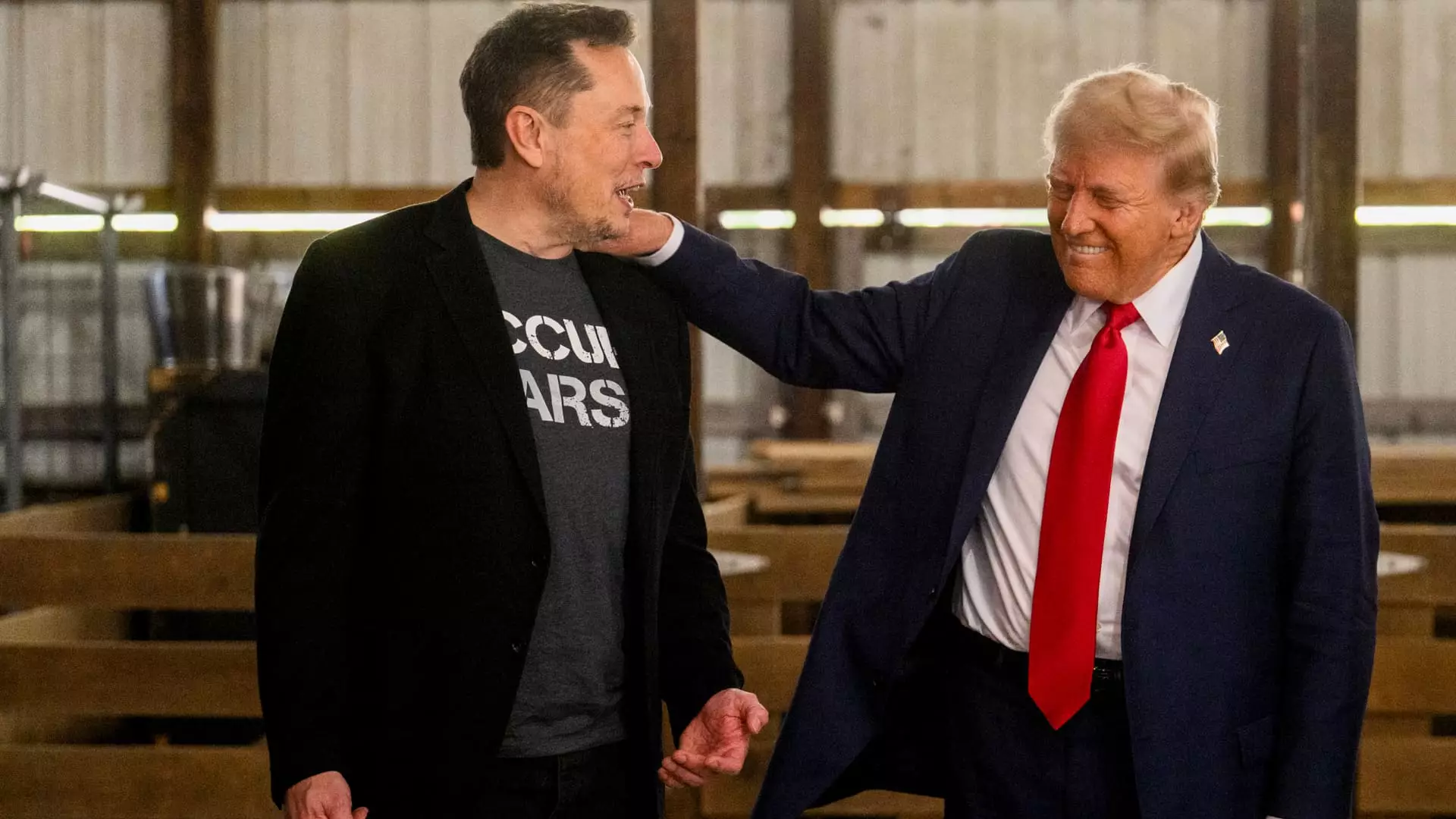In an unexpected yet significant collaboration, Elon Musk, the influential CEO of Tesla and SpaceX, accompanied President-elect Donald Trump to the first House Republican conference following the recent elections. This notable encounter, which took place in Washington, D.C., signifies a burgeoning alliance that could shape policy discussions in the immediate future. Reporting by NBC News sheds light on how Musk’s involvement in Trump’s administration reflects both his clout and strategic position in political circles.
Musk’s proximity to Trump has expanded significantly since the elections, particularly during his recent week-long stay at Trump’s Mar-a-Lago estate in Palm Beach. This alliance hints at the potential for Musk’s substantial wealth and innovative vision to influence governmental policies. As one of the key figures supporting Trump’s campaign, Musk has positioned himself as a major player within the new administration.
The Department of Government Efficiency Initiative
In a move characteristic of Trump’s idiosyncratic approach to governance, the president-elect has appointed Musk to lead an outside commission titled “Department of Government Efficiency,” alongside entrepreneur Vivek Ramaswamy. The aim of this new initiative is to “dismantle Government Bureaucracy” and impose significant cuts to regulations perceived as overly burdensome. Musk’s bold assertion that the undertaking would “send shockwaves through the system” underscores the ambitious—and potentially disruptive—nature of his agenda.
This initiative highlights Musk’s willingness to confront entrenched bureaucratic practices directly. His comments allude to the extensive inefficiencies often present in governmental frameworks, and his partnership with Ramaswamy suggests a plan for innovative thinking aimed at reforming public administration.
Shifts in Congressional Power
This meeting also unfolds against the backdrop of a Republican resurgence following a midterm election season marked by significant gains in congressional seats, particularly within the Senate. As the GOP prepares to exercise its newfound power, which appears to extend to the House of Representatives as well, leaders are gearing up for crucial internal deliberations. The impending nomination of Mike Johnson, a Republican from Louisiana, as Speaker of the House illustrates the party’s strategic cohesion in light of these electoral victories.
While the nature of Musk’s involvement in legislative affairs remains largely speculative, his connection to Trump presents a new dynamic. It reflects a shift in how business leaders may influence government policies, particularly in light of the increasing overlap between corporate interests and political agendas.
Moreover, the meeting’s relevance is amplified when considering Trump’s upcoming interactions with current President Joe Biden. This interplay between past and present administrations embodies a crucial tradition of a peaceful transfer of power—something that was notably absent after Trump’s loss in the 2020 election. This time, however, Vice President Kamala Harris exhibited a readiness to accept the electoral outcome and facilitate this transition, starkly contrasting Trump’s previous perspective.
The overarching question emerges: Will these newfound alliances and collaborations lead to effective governance or exacerbate the political polarities that have characterized recent American politics? Musk’s foray into the political sphere has potential, but it also poses risks of further entrenching divisions, depending on the nature of the initiatives undertaken.
As Musk steps further into the limelight of political influence, his track record in business may not seamlessly translate into success in public governance. Critics may question whether he possesses the requisite understanding of the complexities involved in navigating government systems, especially when faced with the weight of responsibility for public welfare.
On the other hand, proponents argue that Musk’s innovative mindset could yield fresh perspectives beneficial to governmental operations. His unique approach to problem-solving could offer solutions to age-old bureaucratic challenges, setting a precedent for private-public partnerships in the future.
In the end, the unfolding narrative between Musk and Trump will certainly impact the U.S. political landscape moving forward. For now, all eyes are on Washington as the implications of this partnership begin to materialize amidst broader partisan shifts.


Leave a Reply